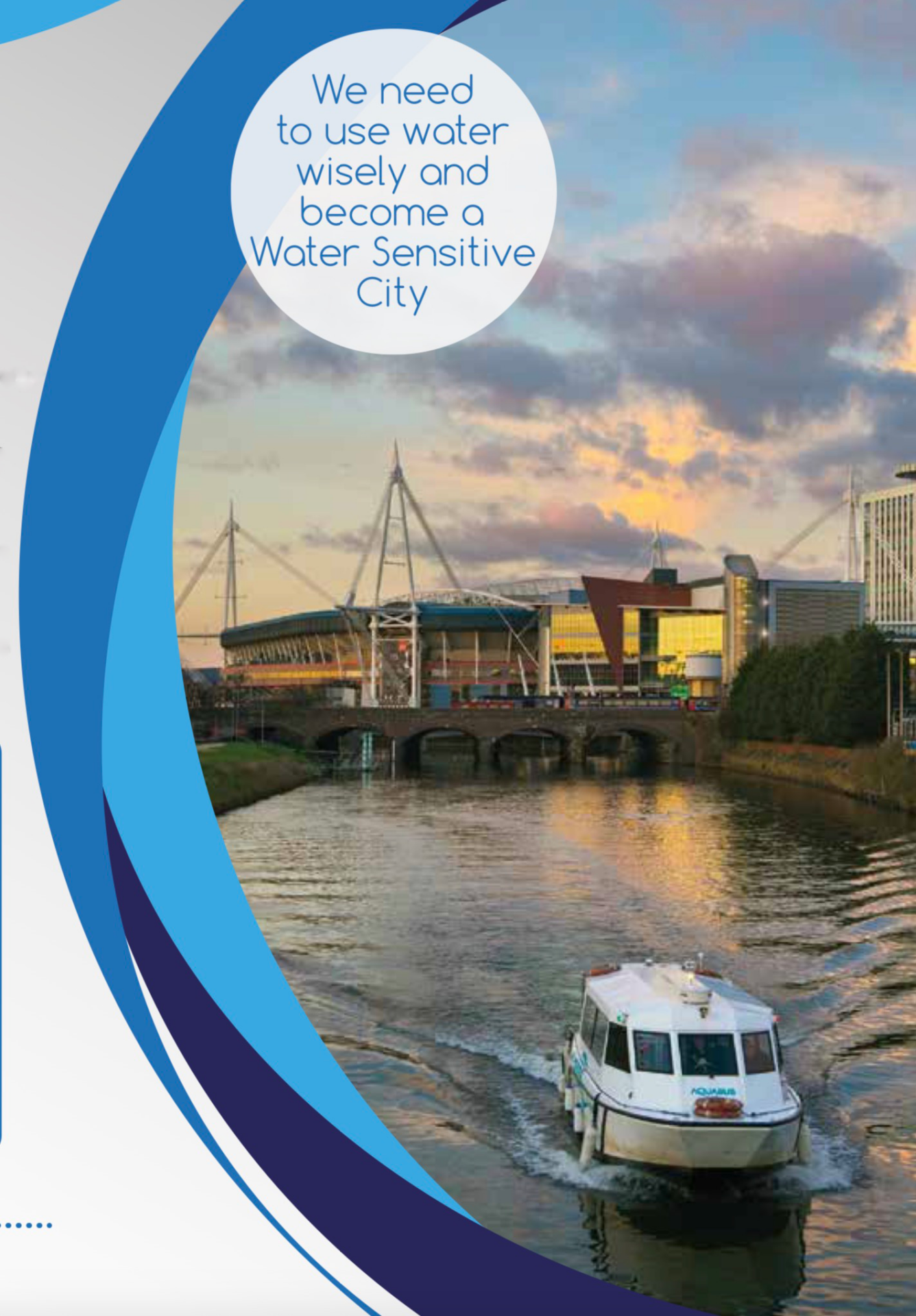The CUSP platform has been previously deployed to aid Cardiff City Council visualising and managing their energy usage across their building stock.
The platform been used to integrate GIS, 3D Model data (captured by aerial scans) and telemetry data (gas and electricity data). Our state of the art semantic meta model has been used to integrate these disparate data sources.
The platform was used in several ways by the council:
- To enable them visualise energy consumption of their buildings using an intuitive 3D map of Cardiff
- To alert them to problems, using CUSP’s rule engine. This alerted them when buildings energy consumption was significantly higher than normal or occurring outside of the building’s regular opening hours.
- Finally, CUSP’s AI capabilities were used to provide future predictions of energy usage across the city.
CUSP can also integrate with social media services. In Cardiff we integrated this with Twitter to enable the council to identify and visualise tweets referring to specific geographical areas of the city.
The Cardiff smart city strategy
One Planet: Energy
We all depend on energy to heat our homes, cook our food, power the electrical goods we use and run our cars. Issues surrounding global energy security and supply, and escalating costs are well documented. The challenges now are to reduce demand for energy, invest in local sustainable energy supply and provide citizens with energy security and access to more affordable supply.
Much of our energy is used in our homes, and most of our homes were built some time ago. Even by 2050 the vast proportion of all homes in the UK will have been built in the 20th, not the 21st Century. Retrofitting our homes will therefore be crucial to reducing our demands for energy and moving towards our One Planet Cardiff ambition.
As part of our commitment to the European Union’s Covenant of Mayors we’ve set a citywide per capita CO2 reduction target of 26% by 2020, and have formed citywide partnerships with local businesses and organisations to deliver this.
In addition we’re committed to reducing our own CO2 emissions from Council activities by 60% by 2018 and have committed over £1,250,000 to energy projects recently with further, greater investment planned.
Our approach must ensure that we tap into the potential sustainable energy generation opportunities in the city such as solar, hydro, biomass, ground heat, tidal and wind power. Energy technology in particular provides the opportunity to grow innovation through partnerships and new business, and make provision for green jobs and prosperity.
Community engagement to reduce energy demand and increase energy efficiency is also important. Recently we worked with the Energy Saving Trust to provide 1000 homes in Rhiwbina with energy and water reduction advice, resulting in carbon and cost savings.
A number of schemes to reduce energy demand and increase local sustainable energy production are underway or planned; these are detailed in the One Planet Cardiff delivery plan.
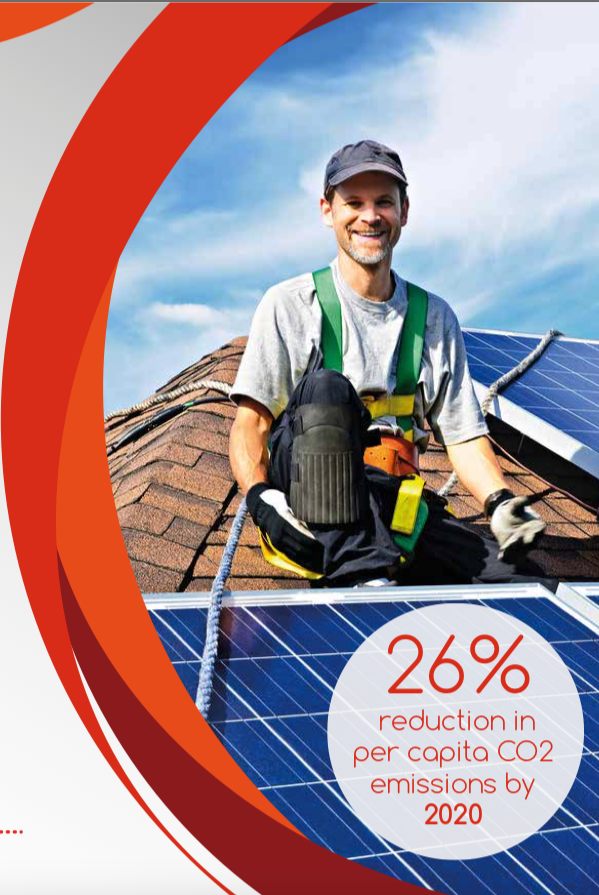
One Planet: Place
Becoming One Planet Cardiff is all about making sure that Cardiff is an enterprising, prosperous, healthy, happy, clean and green city in the future. It’s about making sure that Cardiff will be an even better place to live in 2050 than it already is now.
To get there:
- We’ll aim for Cardiff to become a world-renowned centre for sustainable thinking and doing
- We’ll build on our many relationships with academia, interest groups and innovative businesses to help inform our decisions and projects
- We’ll make it as easy as possible for you to make changes to your home which will save energy, money, create jobs and lower our collective footprint
- We’ll make it as easy as possible to reuse, reduce and recycle the waste we produce which will save the city energy, lower our footprint and help us to avoid hefty fines from the European Union
- We’ll make it as easy as possible to leave your car at home and get around the city sustainably
- We’ll design the growth of the city with sustainability built in as a first principle
- We’ll make it as easy as possible to access information on sustainability issues so that you can make better informed choices
Above all, becoming One Planet Cardiff will be about responding to the big challenges and grasping the big opportunities of the 21st Century.
This will require new solutions to be invented, designed and tested, which in turn will require talent, imagination, enterprise and invention. Cities don’t have these qualities, people do – and these are qualities the people of Cardiff have in abundance. The people who make smart, sustainable lifestyle choices and achieve positive behavioural change are the people who’ll make a difference to the city.
In short, becoming One Planet Cardiff will rely on us all becoming One Planet People.
For further information on sustainable development issues please contact:
Sustainable Development Unit Cardiff Council
County Hall
Cardiff
CF10 4UW
Email: sustainabledevelopment@cardiff.gov.uk
Tel: 029 2087 3228 / 3234
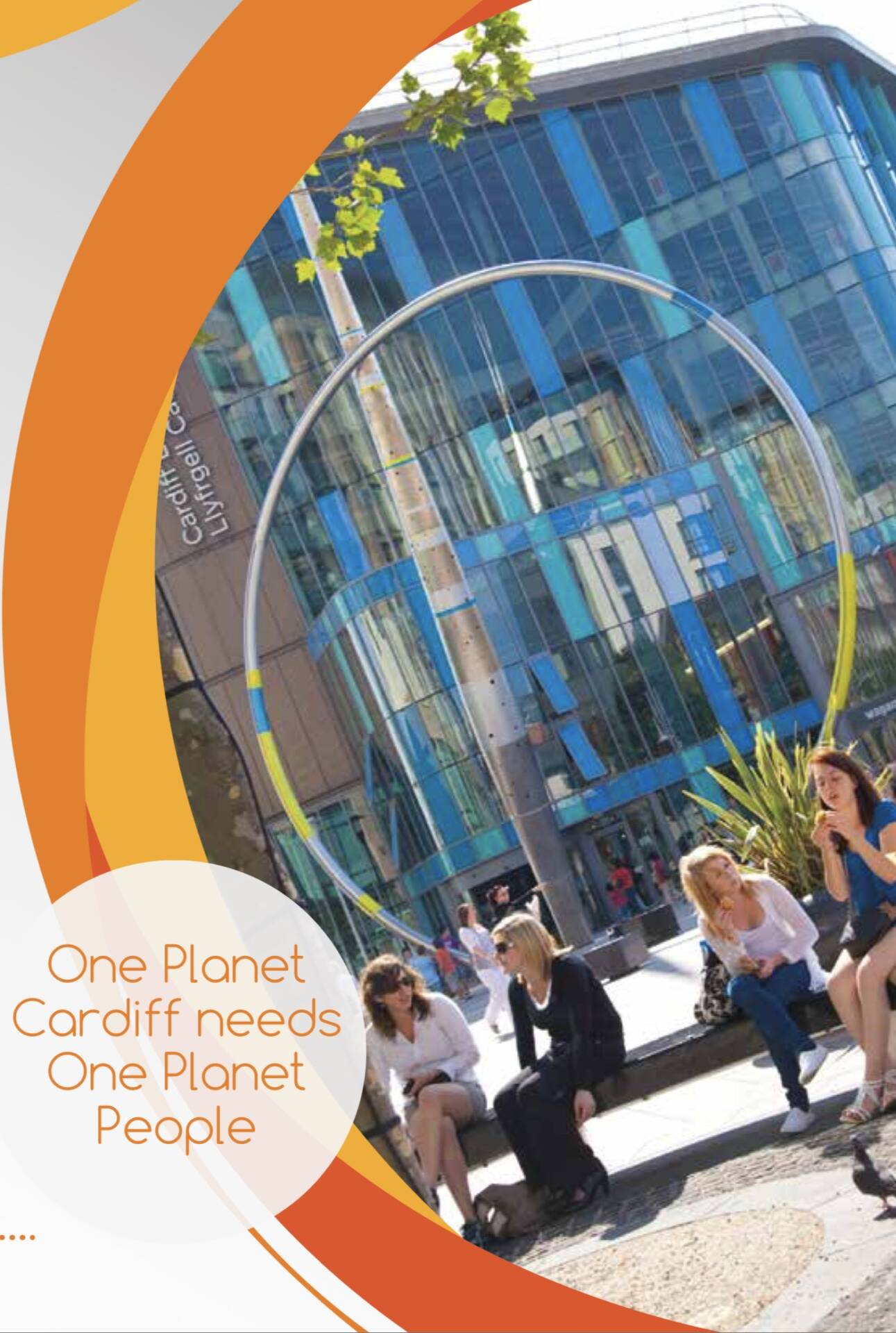
One Planet: People
Sustainable communities will be at the heart of our approach to One Planet Cardiff. Cardiff is famous for its vibrant communities and strong sense of place. It’s these places that need to evolve to meet the key challenges in meeting our One Planet Cardiff aspiration.
Cardiff is set to grow. The city is projecting a population increase of around 20% over the next 15 years. A Local Development Plan is being prepared to plan how the city grows which responds to key sustainability factors. A growing population will mean the creation of new houses and new communities which will be designed and built to the highest sustainability standards, and be connected to the city via active and sustainable transport choices. But this isn’t just about new communities, it’s about ensuring that the services people need are locally available and to every community across the city.
We will work with local businesses to make their operations as green as possible, as well as encouraging the production of sustainable products and services. A large part of the city centre has been declared an enterprise zone. This is an opportunity to masterplan a high-density commercial development avoiding the out of town business park approach, incentivising the development of sustainable buildings and maximising the potential of great sustainable transport links to a wide catchment area.
Cardiff is a green city. It has more green space per person within the settlement boundary than any of the other major British cities, plus easy access to green space even in the city centre. The city contains a vast network of Rights of Way that include the Taff, Ely and Rhymney River Trails and the Wales Coast Path. Access to good quality open space is beneficial to our resident’s physical and mental wellbeing – it also supports a wide array of biodiversity and provides green corridors around the city. We’ll be making sure that this thinking is continued in all our new developments and masterplans across the city.
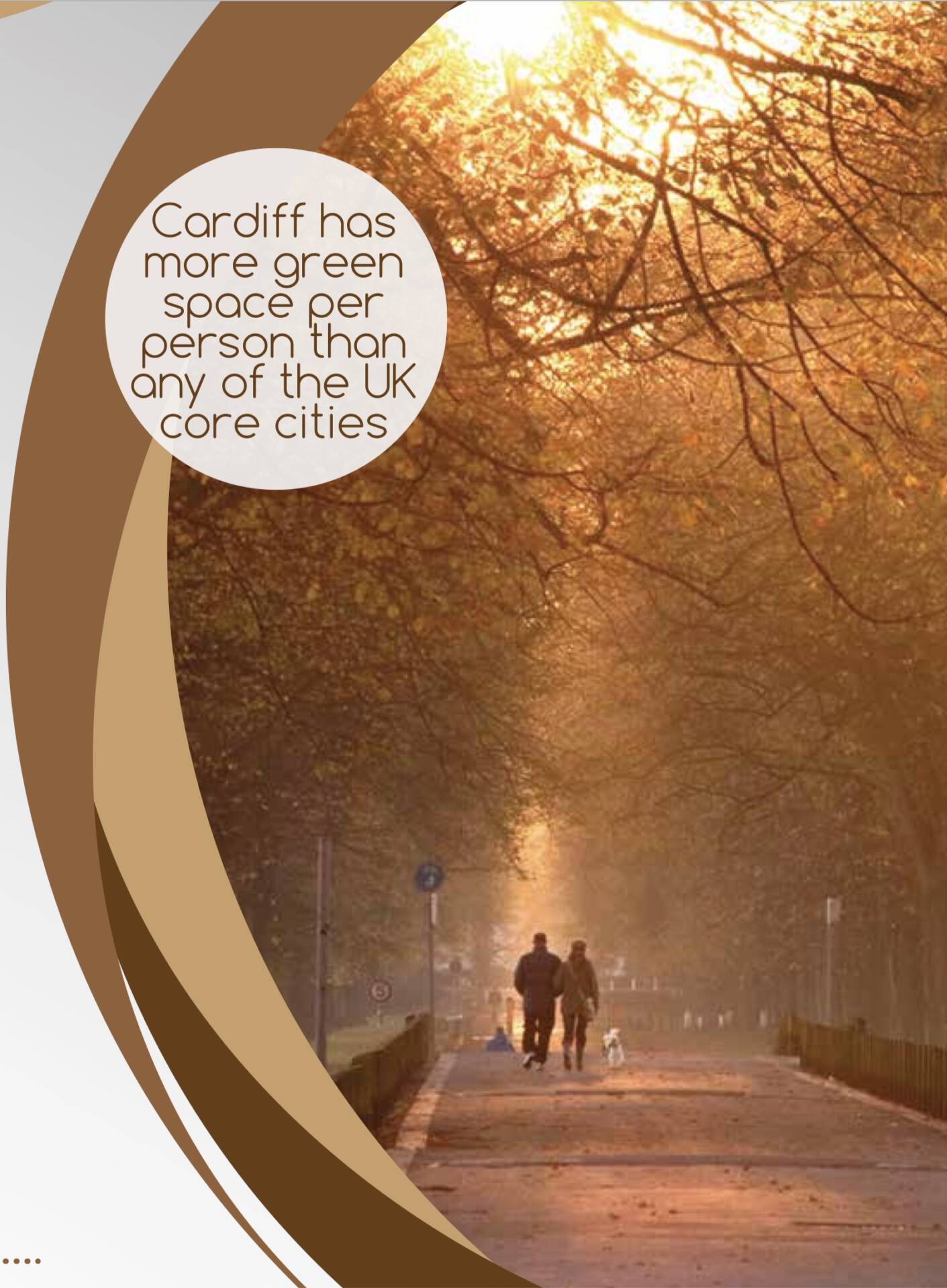
One Planet: Transport
Transport in Cardiff is currently dominated by private car journeys. This creates challenges for the city around carbon emissions, congestion and health. Getting transport right can help make Cardiff a safer, healthier, more prosperous, cleaner and greener city. It’s clear we need to change the way transport works in the city, with the aim of making it as easy as possible to leave your car at home with sustainable transport options that are accessible to everyone.
Recognising the need to achieve this modal shift Cardiff is a Welsh Government designated Sustainable Travel City. We’ve introduced the Cardiff Car Club so households can save money and carbon through getting rid of the second car; created Park and Ride facilities in the East, West and South of the city; implemented bus priority measures; developed a strategic cycle network plan for the city; opened the Pont y Werin bridge completing the 10km circular Bay Trail and improving the active travel links between Penarth and Cardiff; and introduced, with South Wales Police, a SMART City hub which helps to better monitor and manage transport movement across the city.
Although this is good progress there is still need to do more. As the city grows we’ll ensure that we build sustainable neighbourhoods and build continual improvements to networks to offer realistic sustainable and active travel choices. The delivery plan gives further details of projects in place and under development to achieve this modal shift.
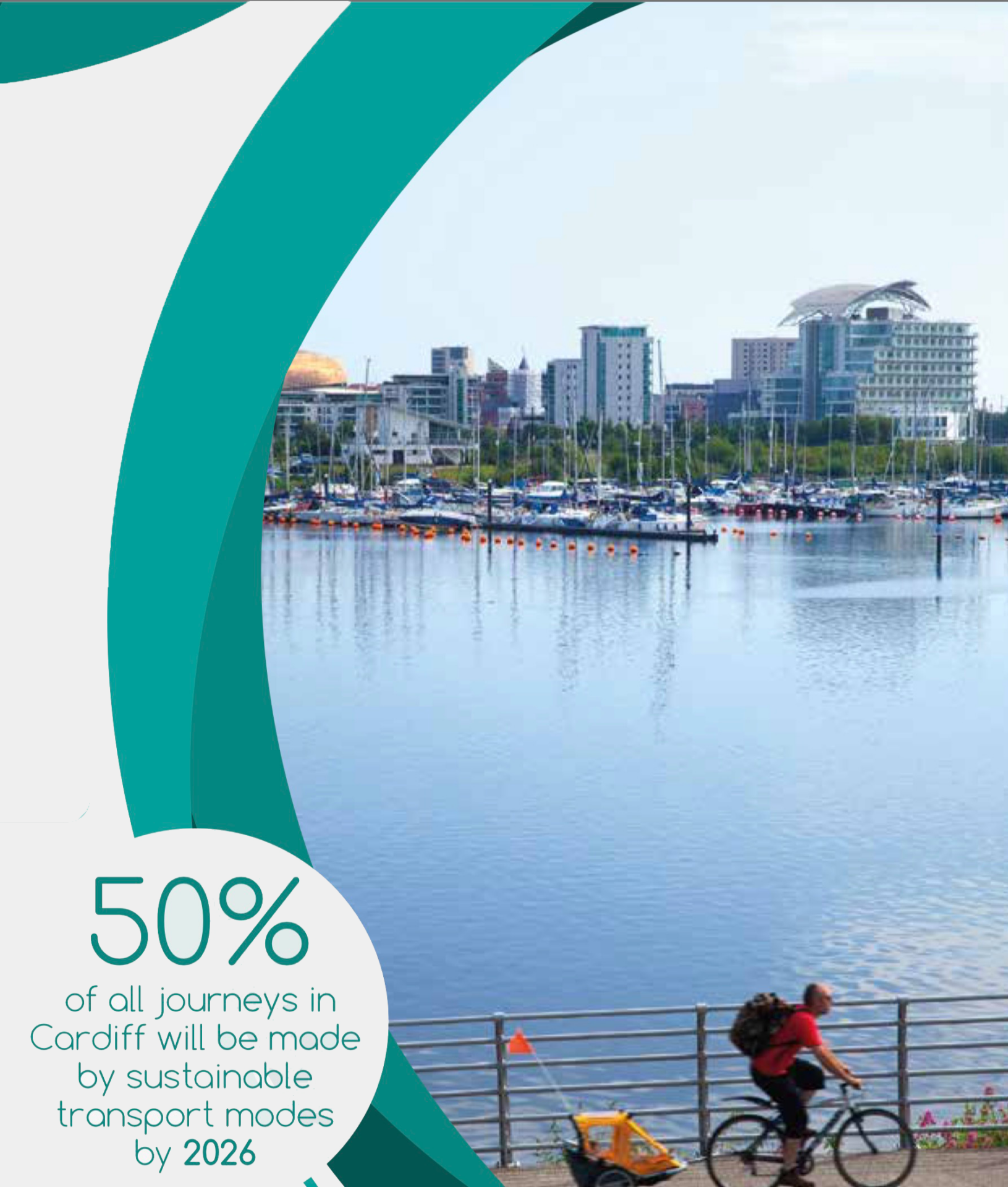
One Planet: Waste
By 2050 Cardiff aims to be a Zero Waste City. This is more than an aspiration; by 2025 the Welsh Government has set a target that 70% of household waste must be recycled or composted.
These are challenging targets. But they’re ones that we’re on course to hit. Our early aim is to maximise the amount of waste which can be reused, recycled or composted. Over the last 10 years the recycling and composting rate of household waste in Cardiff has risen from 4% to 52%. We’re on target to exceed 52% recycling in 2013/14 and will continue to adjust and amend strategies to deliver the highest targets, reduce waste and optimise waste as a resource overall.
To achieve these targets so far we’ve changed our collection patterns with food waste and green bag recycling picked up weekly, and black bag and bin collections every other week. Much has been achieved, however the low hanging fruit have been taken and more must be done. We need to push forward waste reduction, optimise reuse, maximise recycling and avoid disposal; alongside changing people’s habits, and changing business activity in a way that will help reduce business cost. Our One Planet Cardiff ambition will require continual review and drive to progress our waste reduction targets.
The delivery plan will continue to describe that achieved and those additional changes needed to truly become a Zero Waste City by 2050.
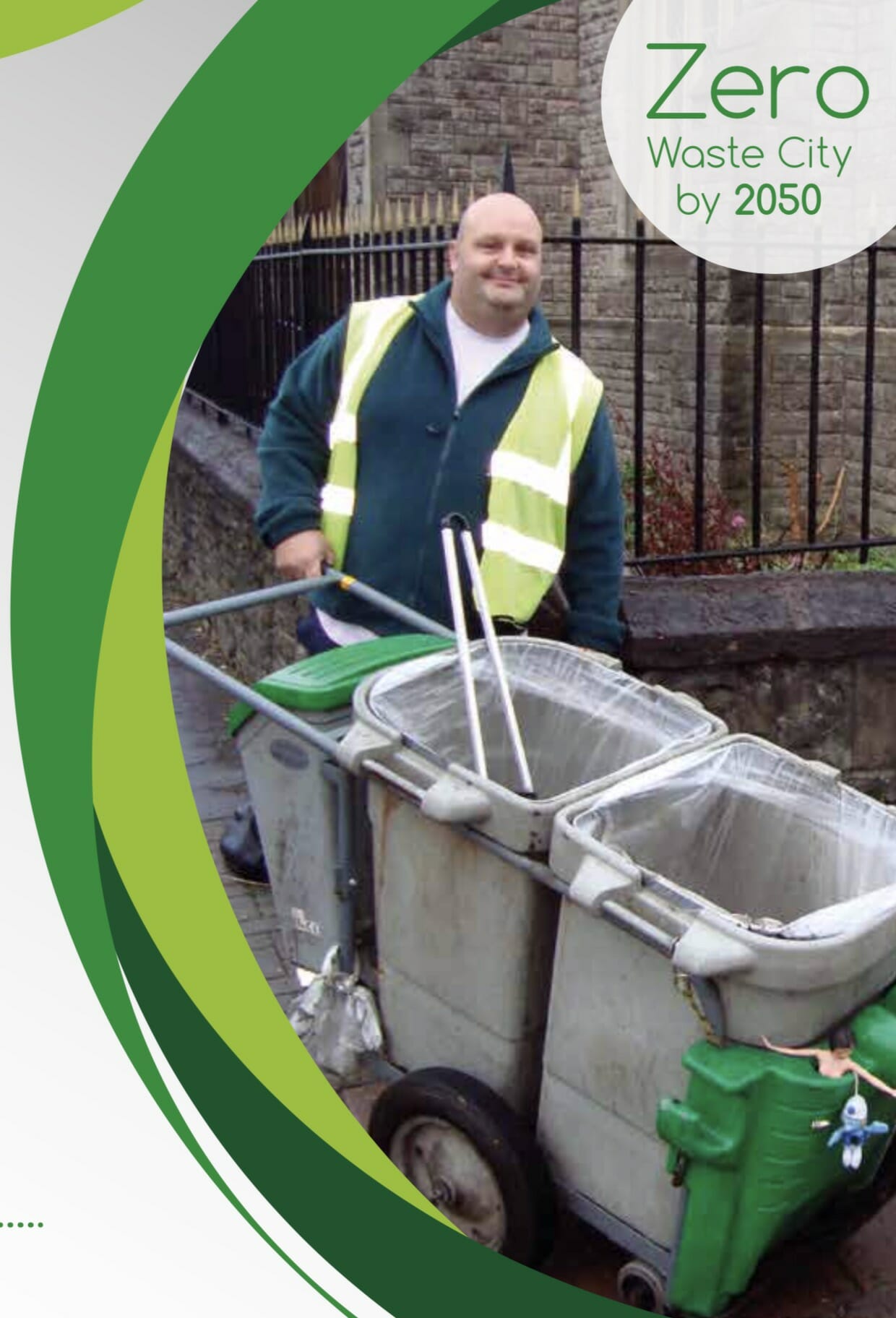
One Planet: Water
Wales has a reputation for having lots of water, but we need to ensure that we use this natural resource wisely. One big challenge, and a big opportunity, will be how we make the most of this resource, to develop new ways of supplying water, treating water, making energy from water, ensuring water security, and of course, preparing for too much water in the form of flash flooding and rising sea levels, creating a water sensitive city in all ways.
Coastal and river basin cities, like Cardiff, must respond to the threat of flooding. Through our Local Development Plan and associated Flood Strategy we’re looking at the potential threat posed by flooding over the next 100 years, which is shaping our thinking on flood prevention projects and on where houses should be built and businesses based in the future.
In Cardiff Bay we have developed innovative approaches to water quality, biodiversity, oxygenation and managing pollution and litter that are amongst the best in the world.
We are also exploring how the Taff, Ely, Rhymney and Cardiff Bay barrage could be used to generate energy. With the Severn Estuary with the world’s second largest tidal range and many inlet rivers on our doorstep, the years ahead could see Cardiff become one of the world’s most important cities for water and energy. We will continue to work with other authorities and business around the Severn Estuary to optimise these opportunities, whilst ensuring that any such opportunities take account of and protect this internationally recognised wildlife site.
Water is a resource we can all collect and use more wisely. Cardiff will work with partners to optimise water as a resource, to support sustainable drainage and development schemes as well as supporting residents
to do more in their homes for grey water use. Cardiff Council is offering discounted water butts for households to collect their own water. Used in this way water for watering the garden or washing the car is not only more sustainable but also a free resource.
A number of projects are underway or developing on flood risk management, water energy generation, and sustainable drainage schemes which are included in the delivery plan.
